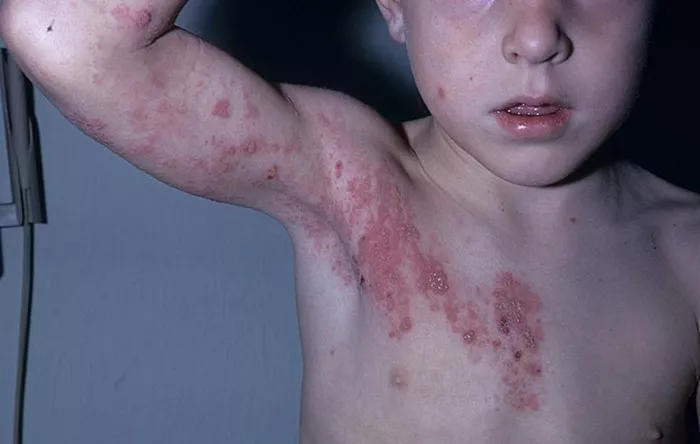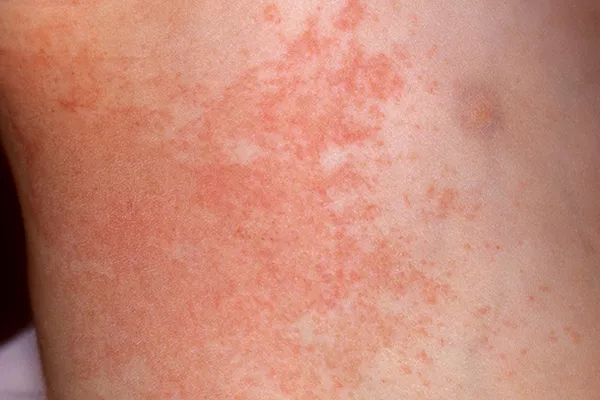Shingles, caused by the varicella-zoster virus (VZV), typically manifests as a painful rash and blisters on the skin. This condition can be quite uncomfortable and disruptive to daily life. While prescription medications are often recommended for treating shingles, several over-the-counter (OTC) options can help manage symptoms and promote healing. Understanding these treatments and their effectiveness is crucial for those seeking relief from shingles. Let’s explore some of the best OTC treatments available.
1. Pain Relievers
Pain is a primary symptom of shingles, and over-the-counter pain relievers can offer significant relief. Nonsteroidal anti-inflammatory drugs (NSAIDs) such as ibuprofen (Advil, Motrin) or naproxen (Aleve) help reduce pain and inflammation associated with shingles. Acetaminophen (Tylenol) is another option for pain relief, although it primarily targets pain and not inflammation.
These medications can be taken orally as directed on the packaging. It’s important to follow dosing instructions carefully and consult with a healthcare professional if you have any underlying health conditions or concerns about potential drug interactions.
2. Antihistamines
Antihistamines like diphenhydramine (Benadryl) or loratadine (Claritin) can help alleviate itching associated with shingles rash. These medications work by blocking histamine receptors, reducing the itching sensation and promoting comfort. Antihistamines may cause drowsiness, so it’s advisable to take them before bedtime if they have this effect on you.
3. Topical Treatments
OTC creams and ointments can provide relief by soothing the affected skin and promoting healing. Calamine lotion can help dry out oozing blisters and relieve itching. Capsaicin cream, derived from chili peppers, can be effective in reducing pain when applied topically to the affected area.
Additionally, moisturizing creams or lotions containing ingredients like colloidal oatmeal or aloe vera can help soothe dry, irritated skin and promote healing.
4. Lysine Supplements
Some individuals find that lysine supplements help reduce the severity and duration of shingles outbreaks. Lysine is an amino acid that may inhibit the replication of the herpes zoster virus responsible for shingles. While scientific evidence is limited, some people report positive results from taking lysine supplements during a shingles outbreak.
5. Vitamin B12
Vitamin B12 is known to support nerve health and may play a role in reducing nerve pain associated with shingles. Some studies suggest that vitamin B12 supplements could help alleviate symptoms and speed up recovery from shingles. While more research is needed, individuals with shingles may consider adding vitamin B12 to their regimen under the guidance of a healthcare provider.
6. Stress-Reducing Techniques
While not a traditional OTC treatment, stress management techniques can play a vital role in easing shingles symptoms. Stress can weaken the immune system, potentially triggering or exacerbating shingles outbreaks. Practices such as meditation, deep breathing exercises, or yoga can help reduce stress and support overall well-being during recovery from shingles.
Important Considerations
Before using any OTC treatments for shingles, it’s essential to consult with a healthcare provider, especially if you have underlying health conditions, are pregnant, or are taking other medications. While these OTC options can provide relief for many individuals, some cases of shingles may require prescription antiviral medications to prevent complications and shorten the duration of the outbreak.
Additionally, proper self-care is essential during shingles recovery. Keep the affected area clean and dry, avoid scratching or picking at blisters, and wear loose, comfortable clothing to minimize irritation. If you experience severe pain, rash spreading to the eyes, or other concerning symptoms, seek medical attention promptly.
Conclusion
In conclusion, while shingles can be a challenging condition to manage, several effective OTC treatments can help alleviate symptoms and promote healing. Pain relievers, antihistamines, topical treatments, supplements like lysine and vitamin B12, and stress-reducing techniques can all contribute to a more comfortable recovery. However, it’s crucial to approach OTC treatments with caution and consult with a healthcare professional for personalized guidance and recommendations tailored to your specific needs. With the right combination of self-care and appropriate treatments, individuals can navigate through a shingles outbreak with greater comfort and expedited healing.
Related Topics:


























